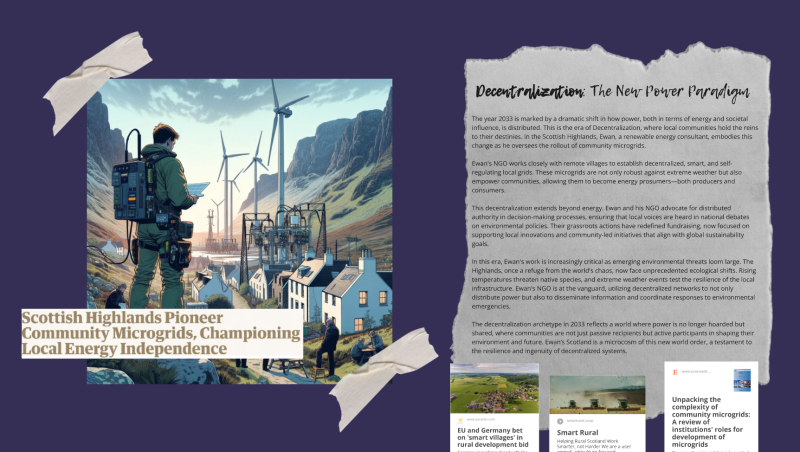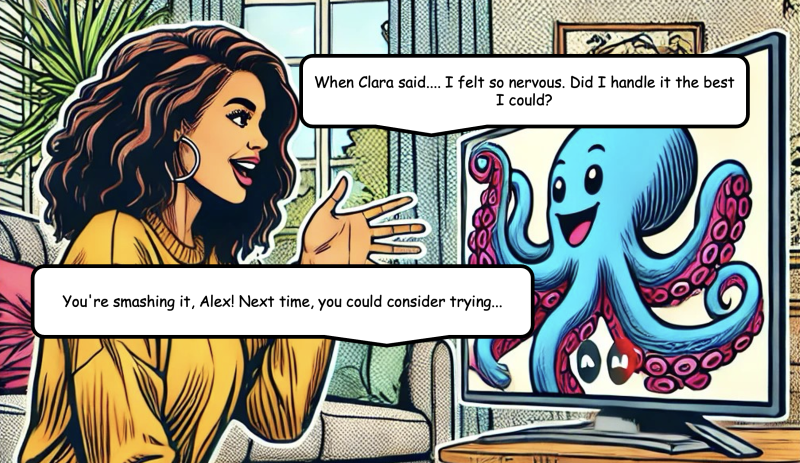Christian Graham03 Oct 2024
Introduction
AI acts as both an accelerator and amplifier of a wide range of human activity – for good and ill. As a small team within Friends of the Earth we have begun to explore where the tools can add value in our innovation work.
Ethical considerations
Disruptive technologies, such as AI, are not neutral in their impact. Who owns and steers the technologies and their future development matters.
Using AI in the context of an environmental justice organisation represents a considerable ethical challenge. Examples of the impacts of AI are wide ranging – from mineral and water extraction and energy usage to governance, bias and incentive alignment. There is much work to do before these tools are sufficiently transparent and equitable to be a net benefit for the planet and its inhabitants.
Generative AI technologies are rapidly changing and prone to a variety of unwelcome artefacts from bias to hallucination. In addition, public understanding and literacy of AI is at an early stage. Not forgetting, of course, the increased environmental impact of using AI tools in comparison to other digital ones. All of this makes public facing deployment of AI at scale currently undesirable. We have concentrated on using AI to improve the impact of our own internal processes so we can ensure humans are kept in the decision-making loop to bring appropriate oversight.
As we begin to navigate the fast-changing reality brought about by AI in the workplace, our overall approach is that of mindful and careful experimentation with the technologies while considering how we can shape them for the better. See our draft Human + Technology manifesto for an indication of our current thinking.
The role of AI in innovation
We believe that AI can add significant value to much of our team’s work through increasing capacity – whether through providing inexpensive access to intelligence, thought partnership and speeding up and/or enhancing the quality of our work and overall impact.
For example, AI can draw upon examples from a wider range of domains than we can – inspiring and remixing ideas and approaches we would not have considered – a core component of innovation.
Practical applications of AI in the Experiments team
Our team’s work using AI generally falls into one of the following three buckets
- Managing an existing portfolio of projects and programmes
- Developing new streams of work
- Keeping an eye on the future
Some in the team are using AI in every day office tasks such as generating meeting notes, proof reading and creating proof of concept illustrations.
Use of AI in portfolio management
A portfolio management approach is relatively new to us, but we are using AI to help us with reviews of specific programmes and projects. That might be as simple as survey design and processing to market research and refining impact objectives.
Futures and AI
We’ve made extensive use of AI in most aspects of the process – from signal process and challenge selection (both in helping to design aspects of the process and in decision making support) to scenario development and visualisation – and consideration of second order effects of change using tools like Futures wheels. See our article on why we future for more detail.
Developing new projects with AI
AI has been a useful assist for:
- Workshops – identifying and tailoring tools, agenda creation and risk assessment
- Prototyping – visualisation, journey mapping and storyboarding
- Simulation – creating personas and testing ideas with virtual focus groups among other tasks.
Conclusion
AI has the potential to improve how we work at Friends of the Earth, helping us innovate, speed up tasks, and make our projects more effective. But we’re careful to use it in a thoughtful way, making sure that people stay in control and ethical concerns are addressed.
While AI can provide helpful insights and boost our impact, it’s important that we use it responsibly, especially given its environmental and social effects. Our aim is to make sure AI supports our mission and helps create a better future for both people and the planet.
If you would like to know more about how Friends of the Earth is working with others to develop an ethical framework for AI, get in touch.



